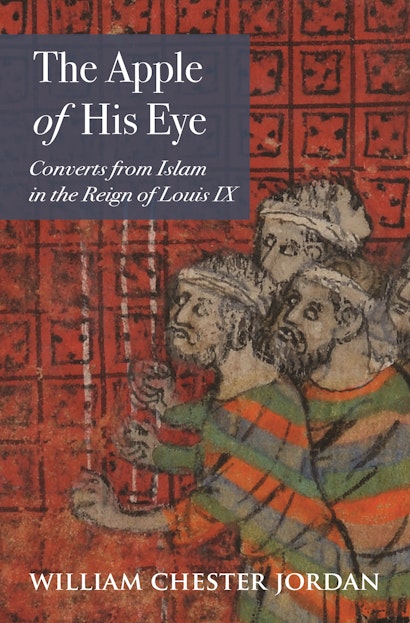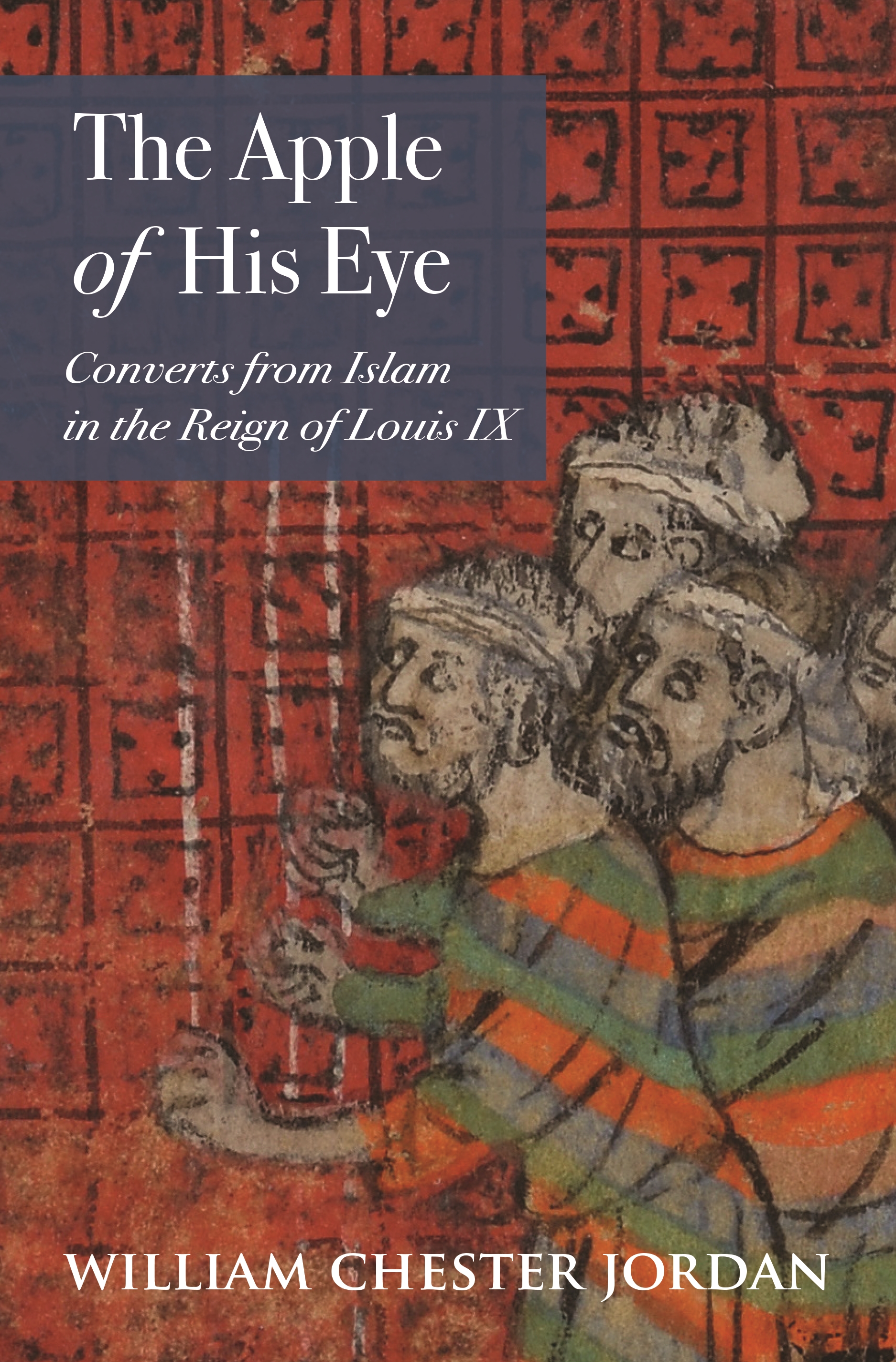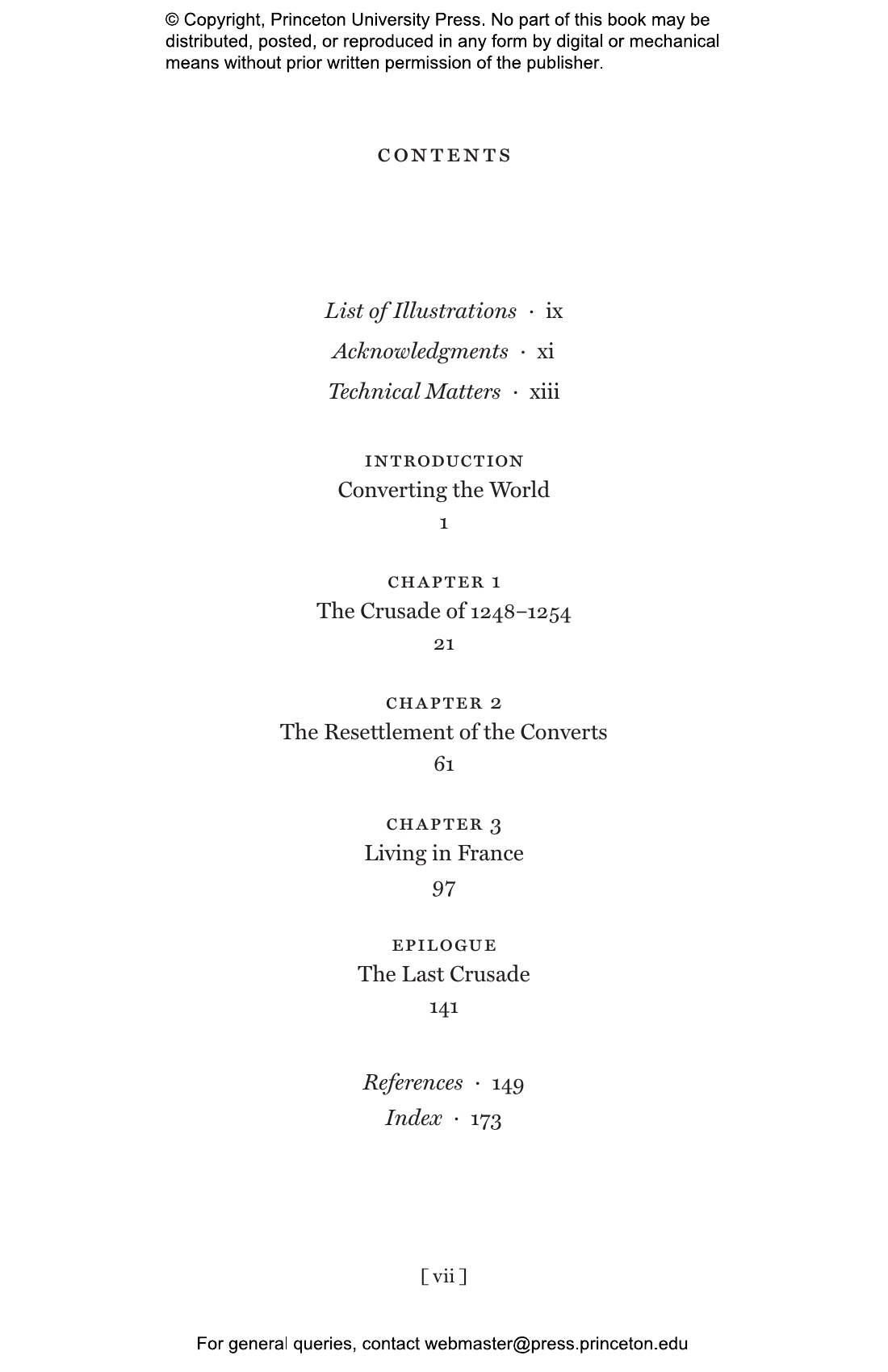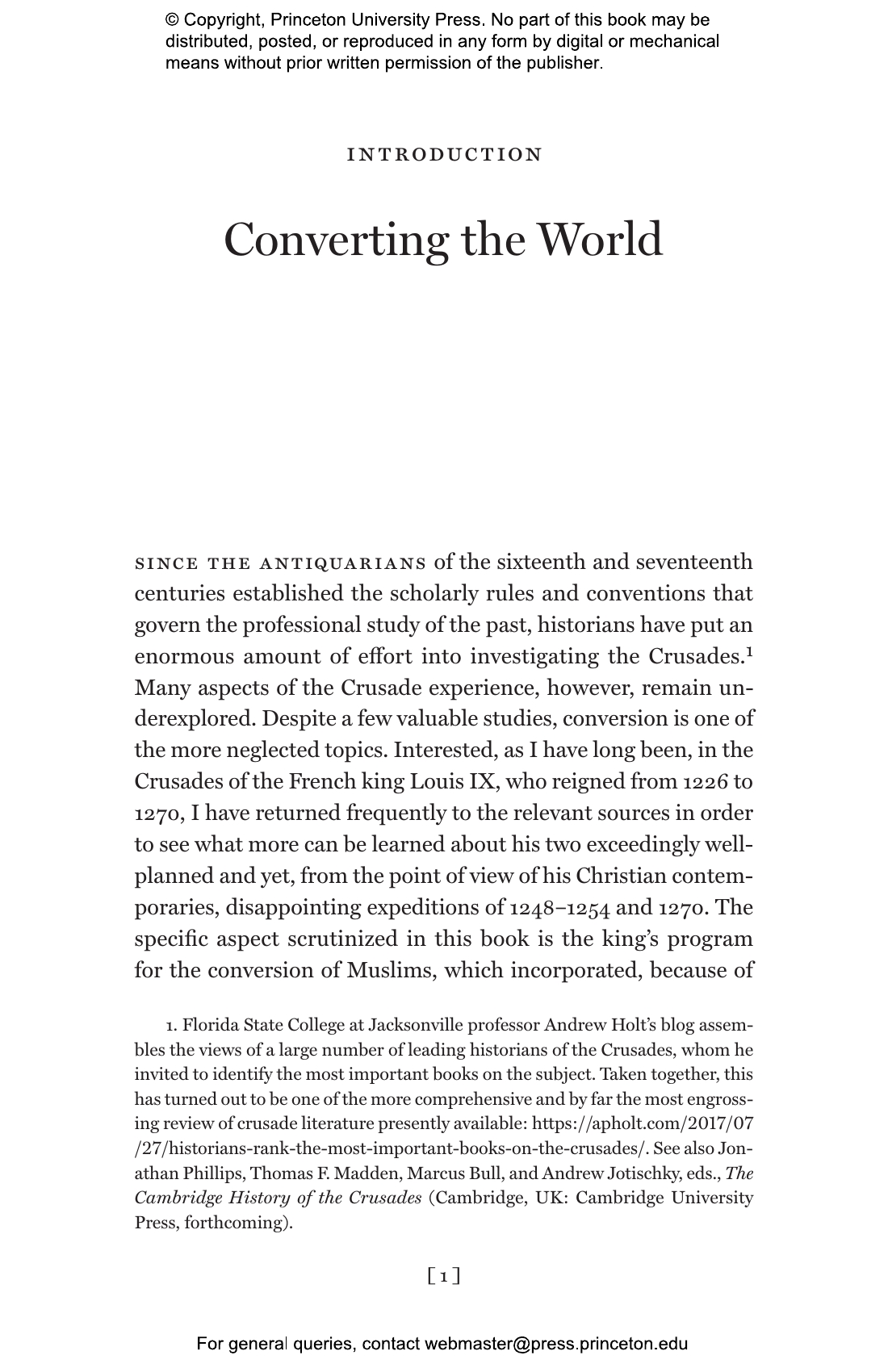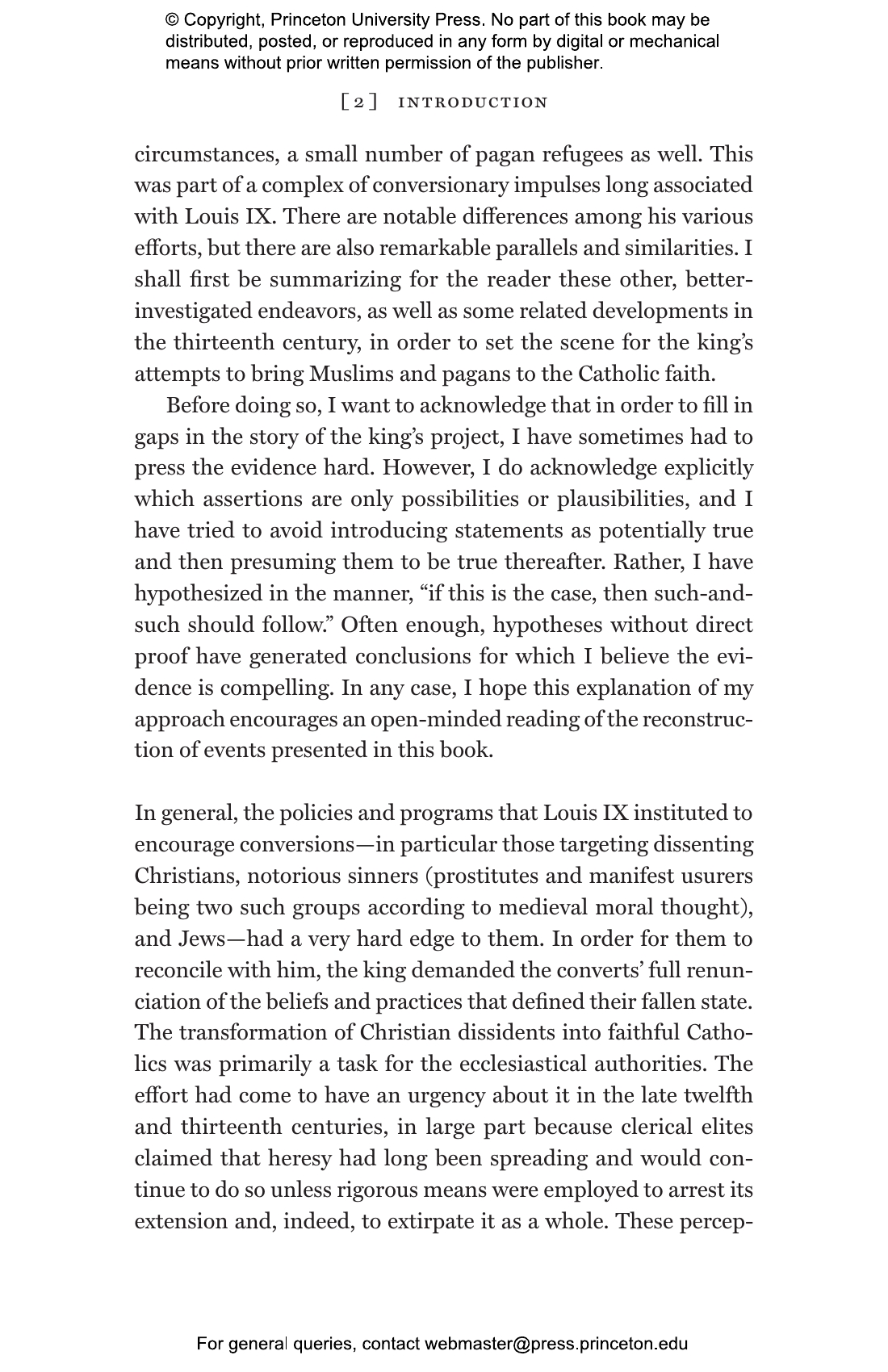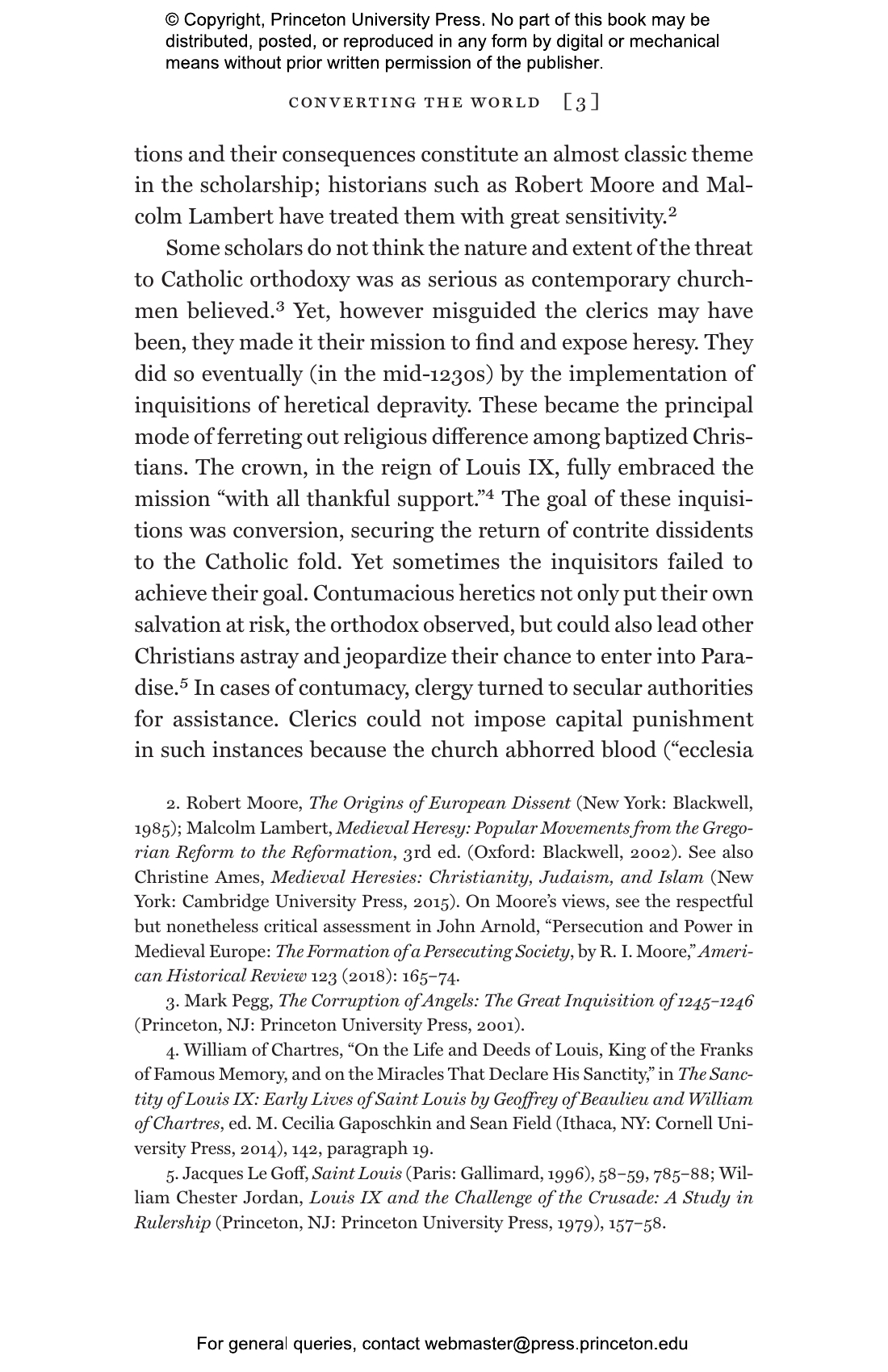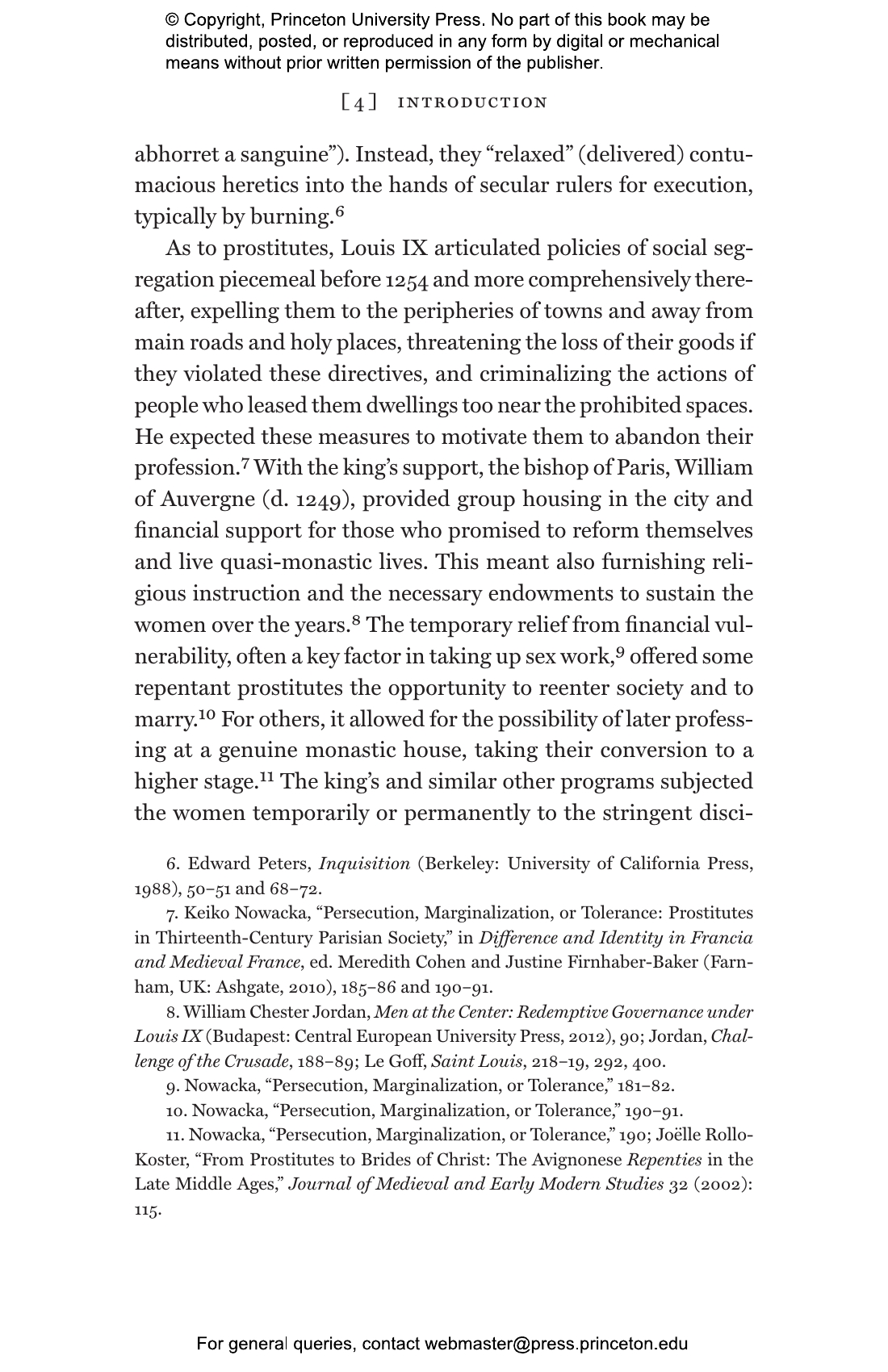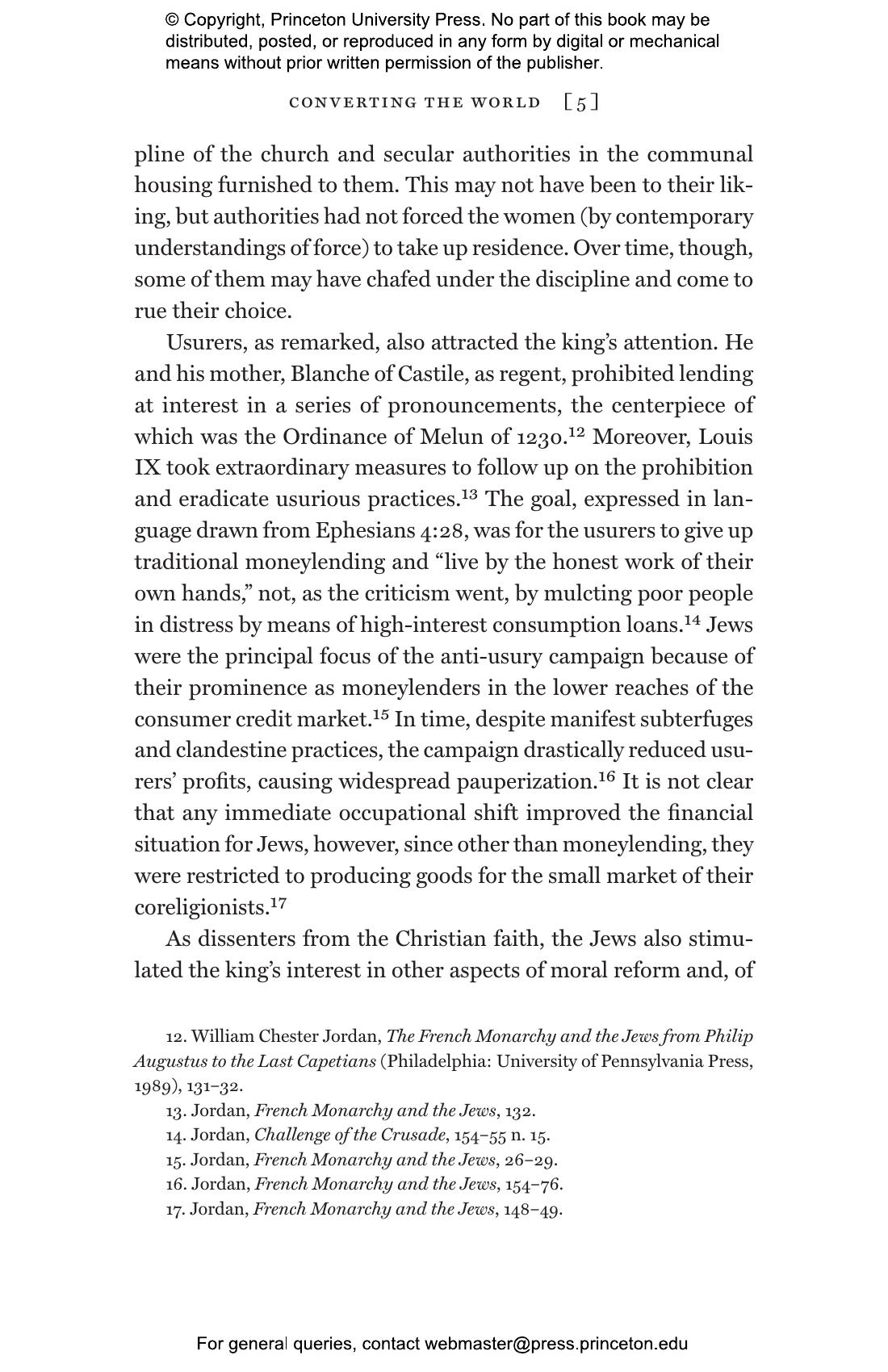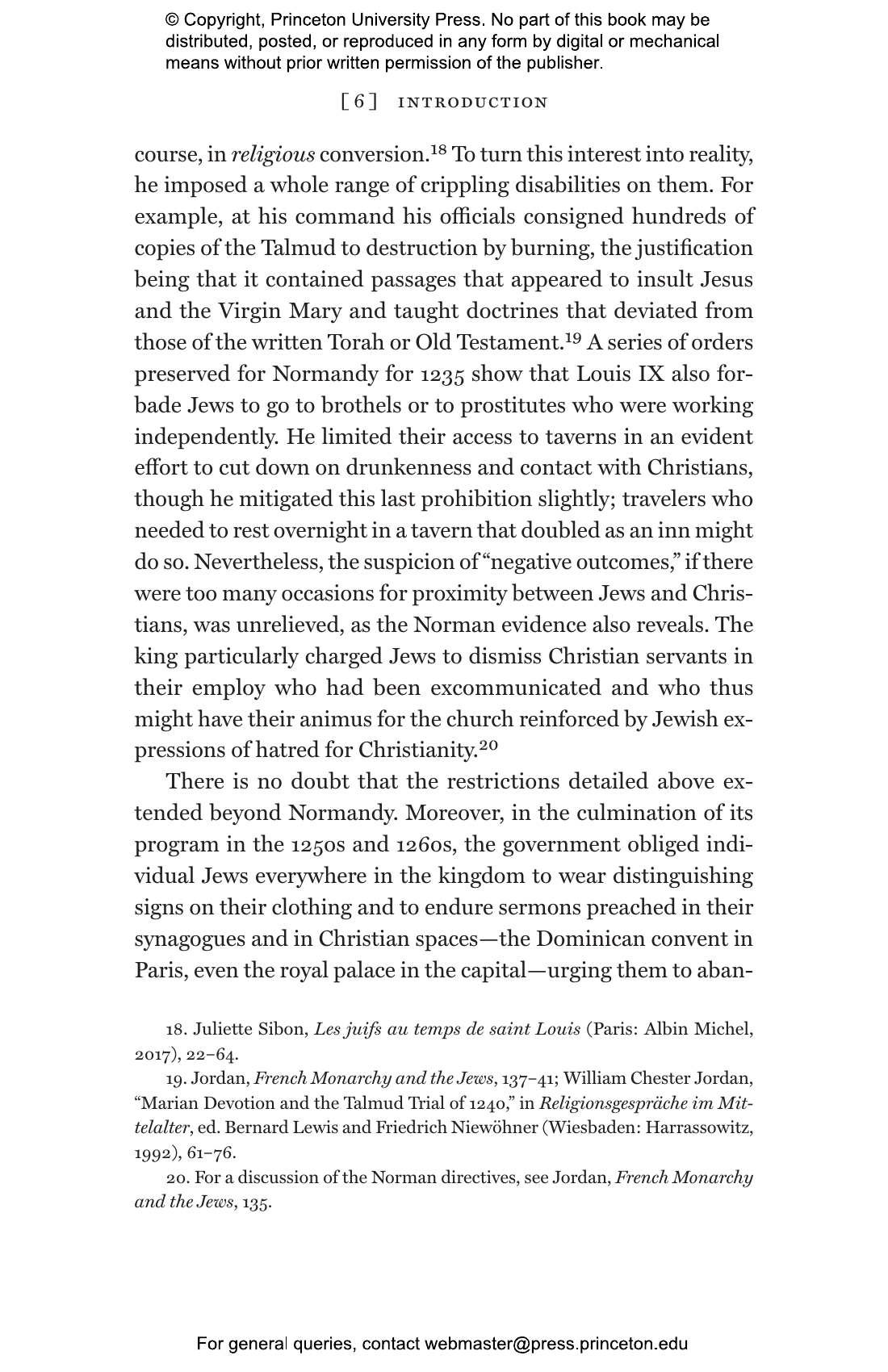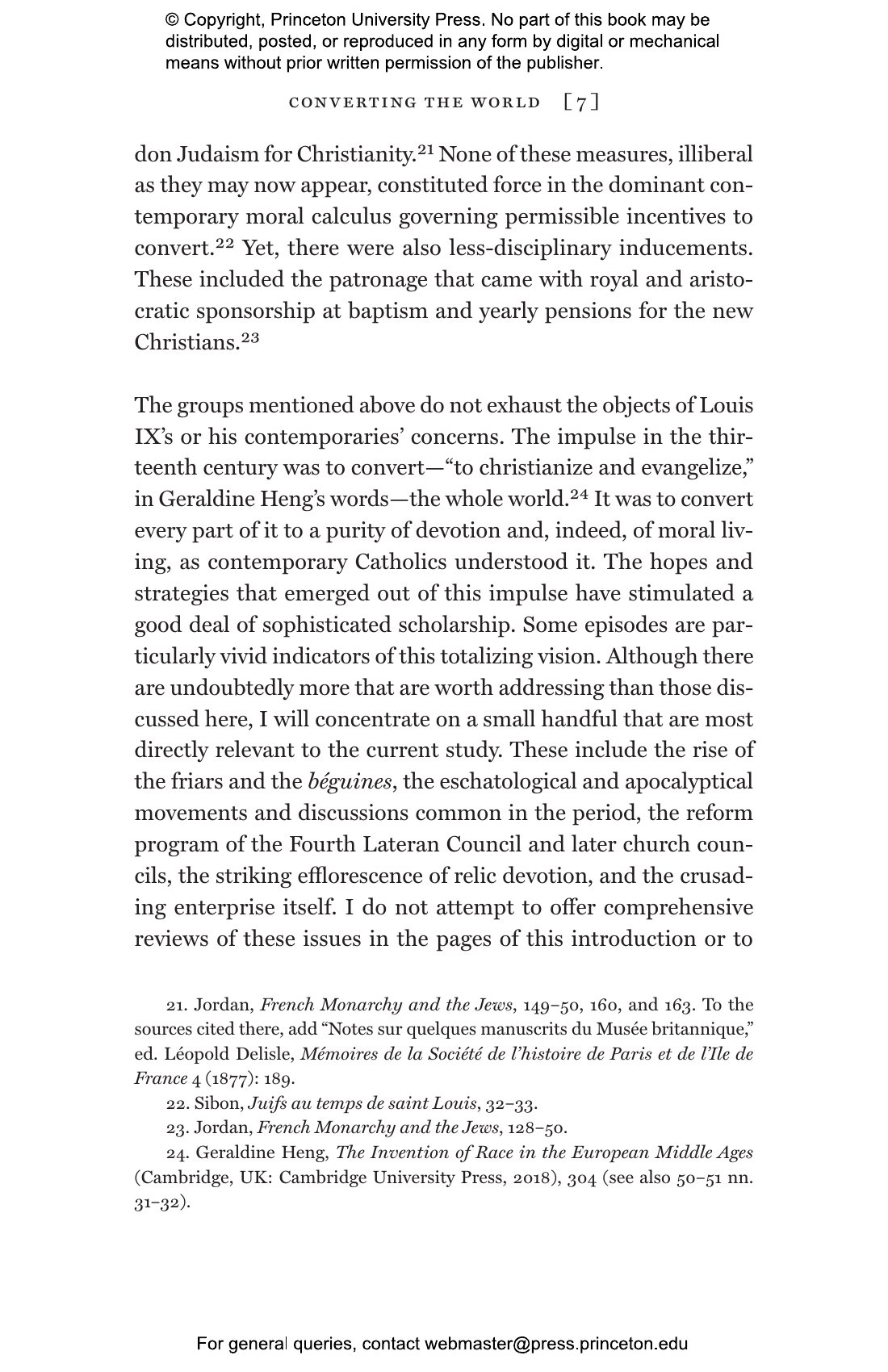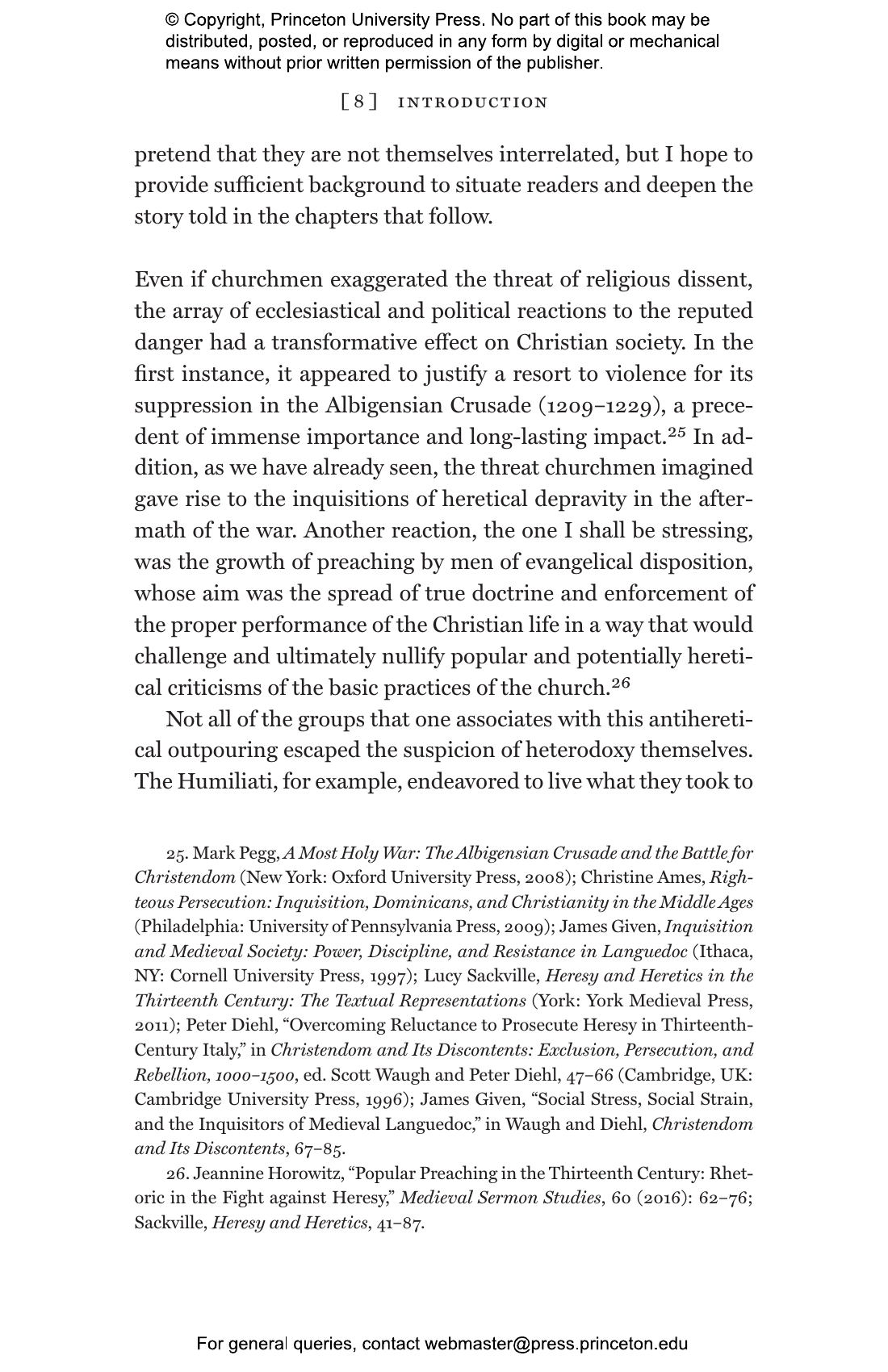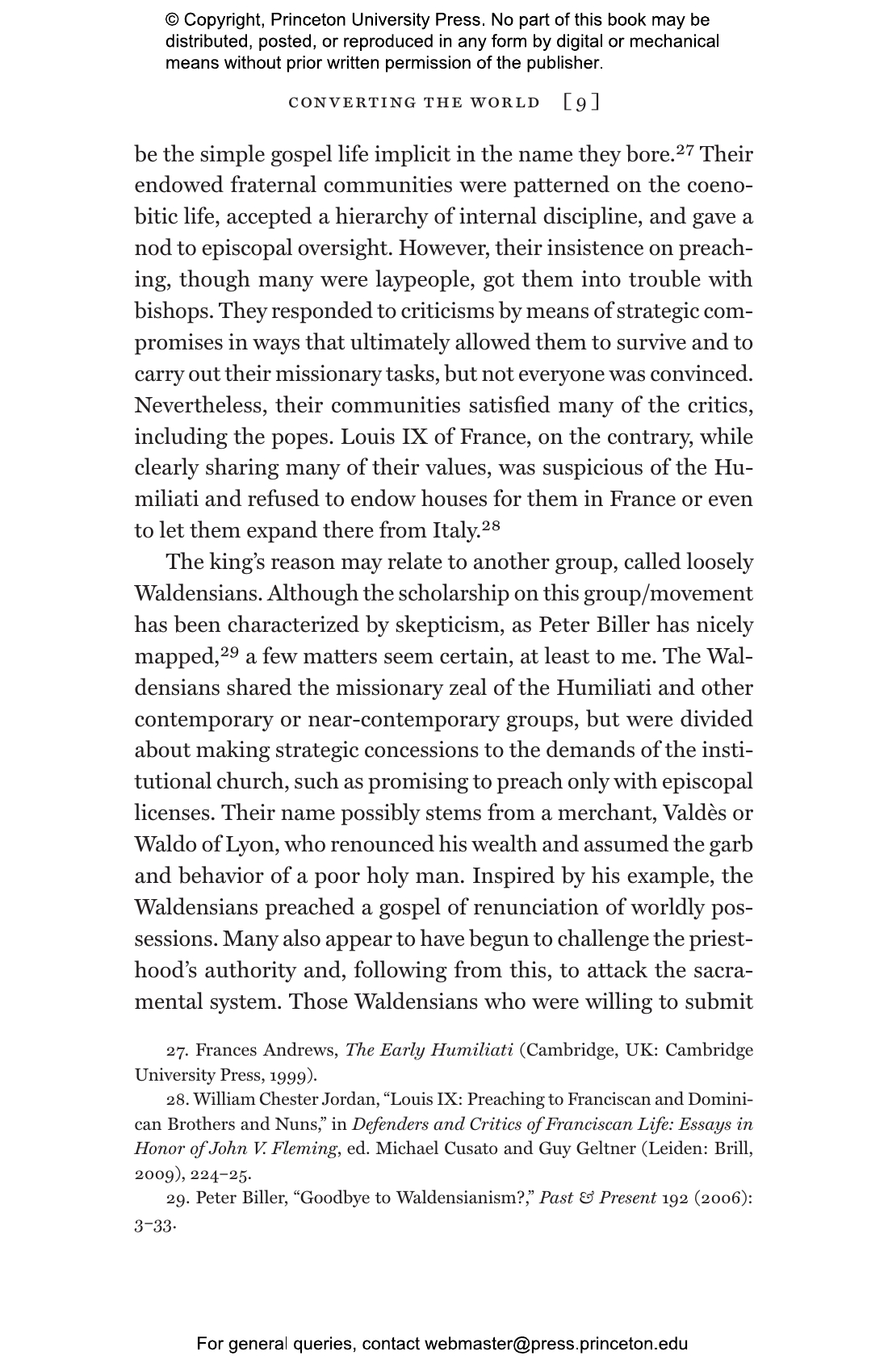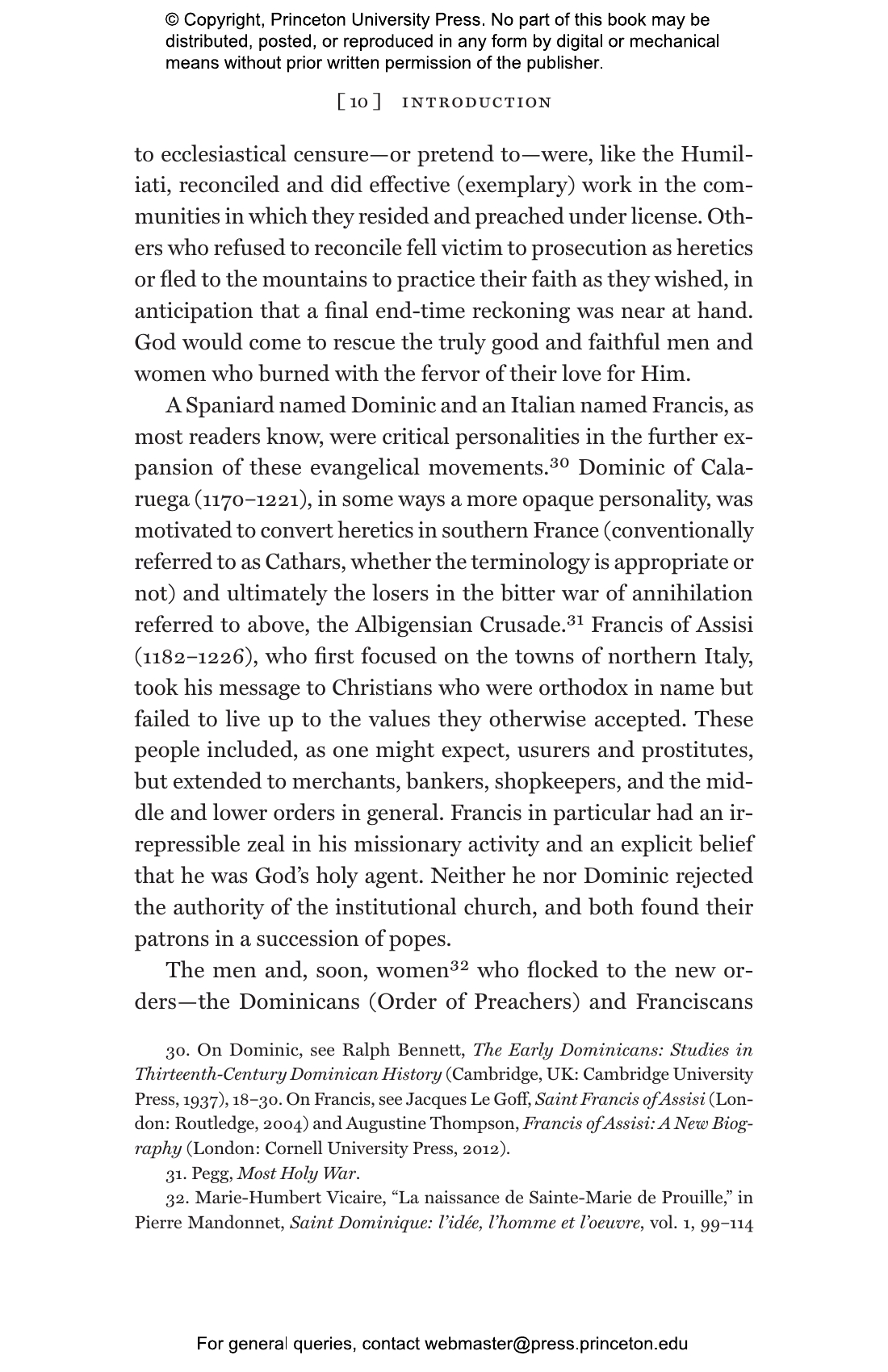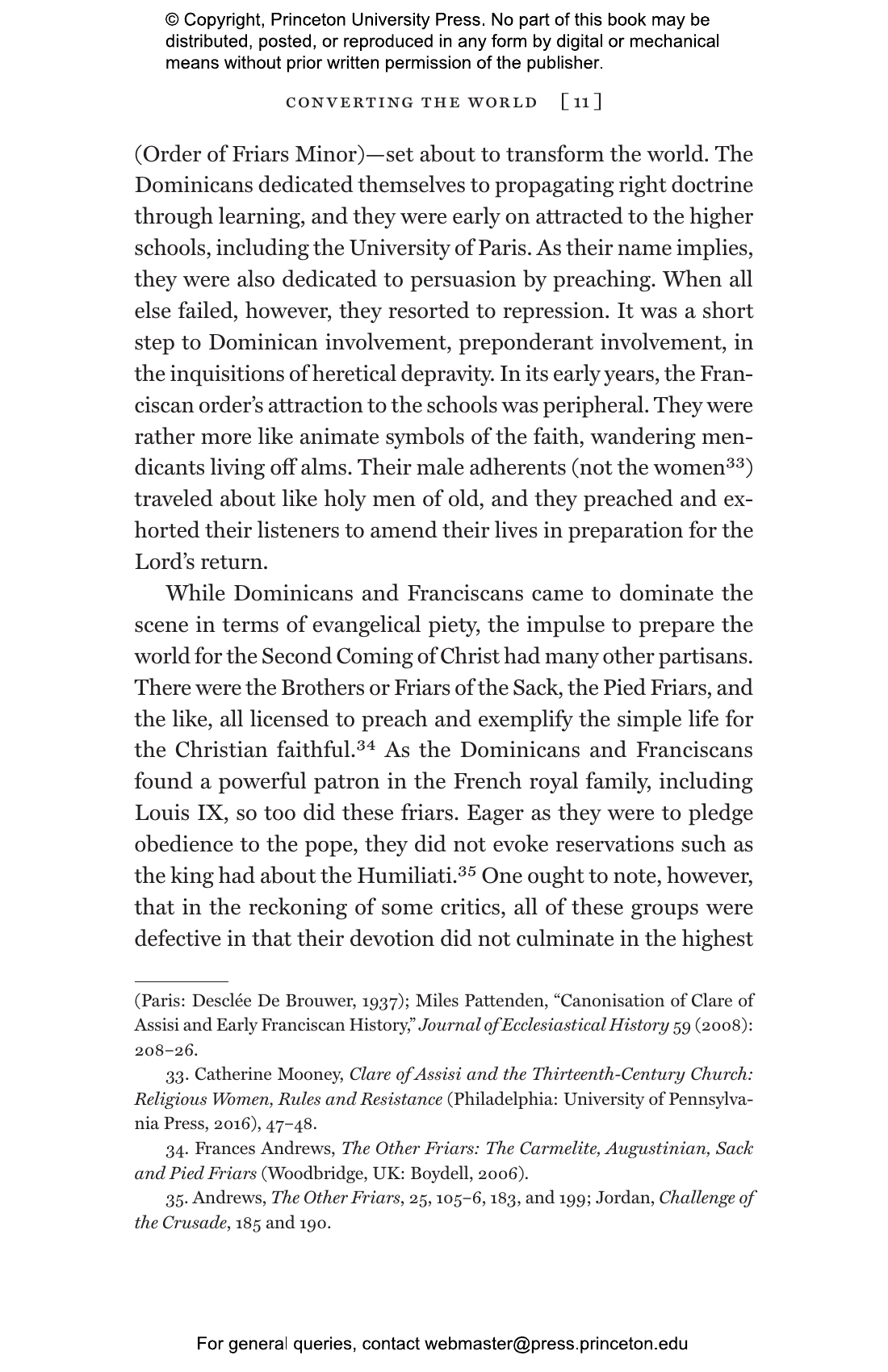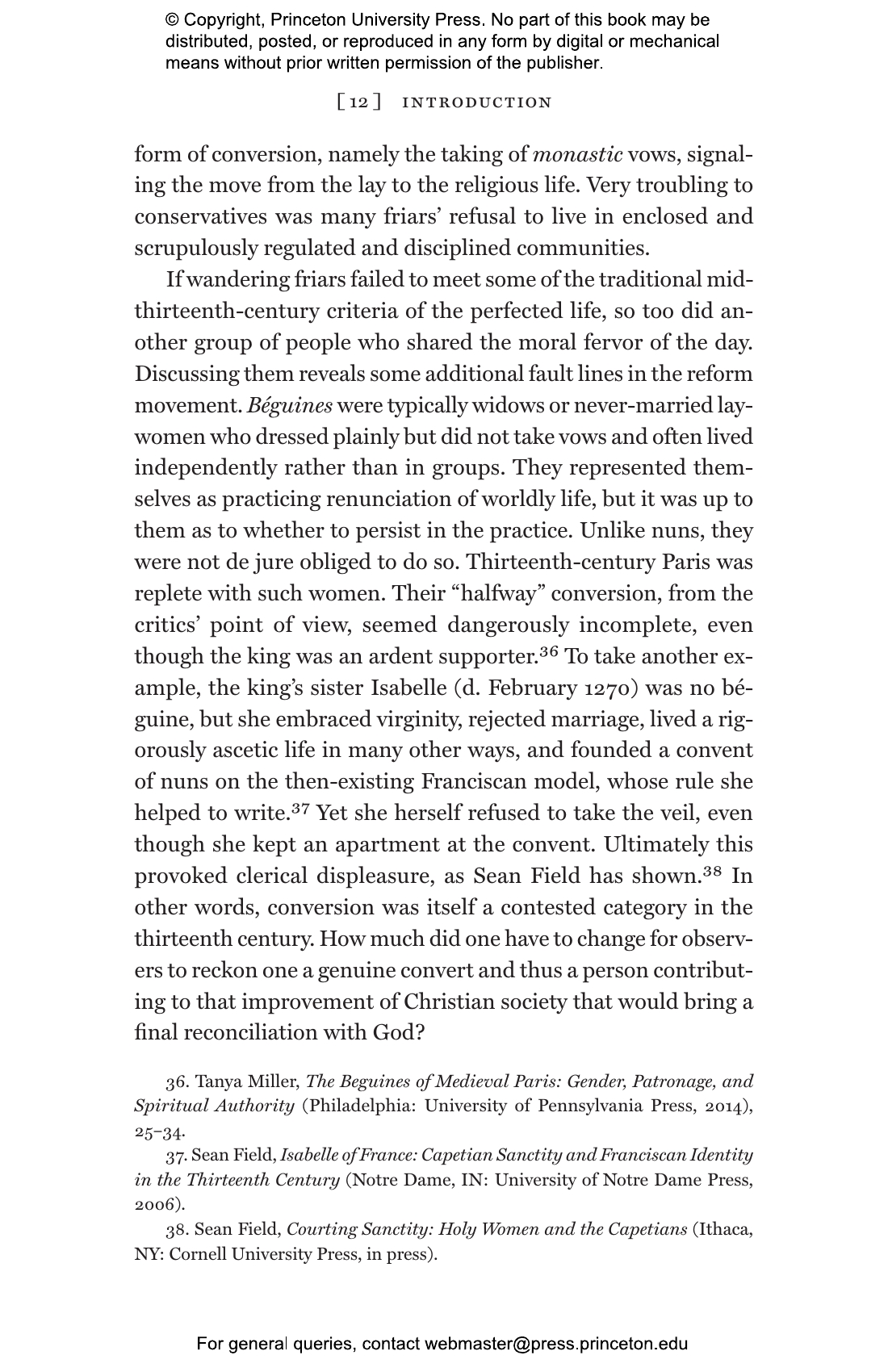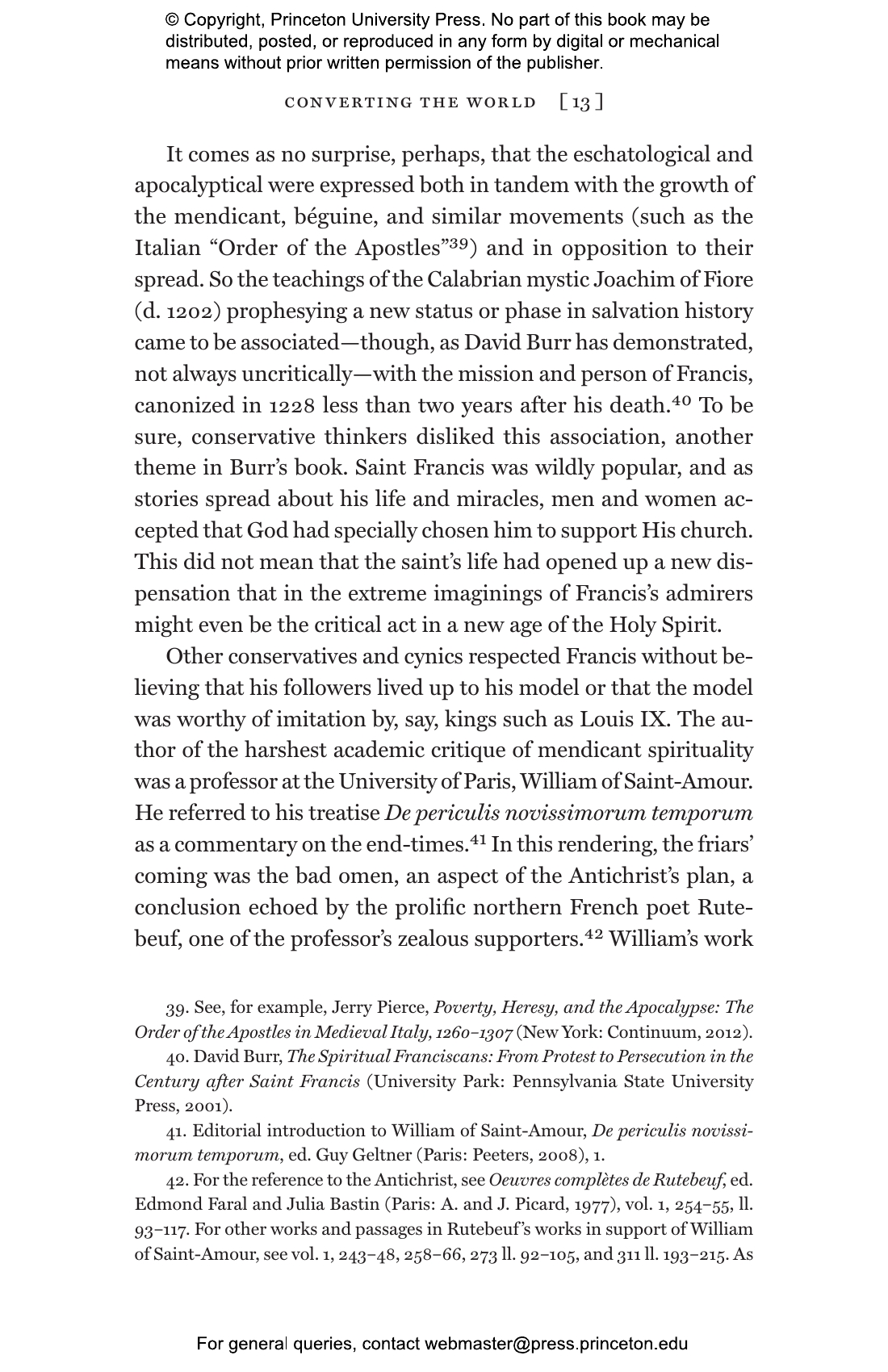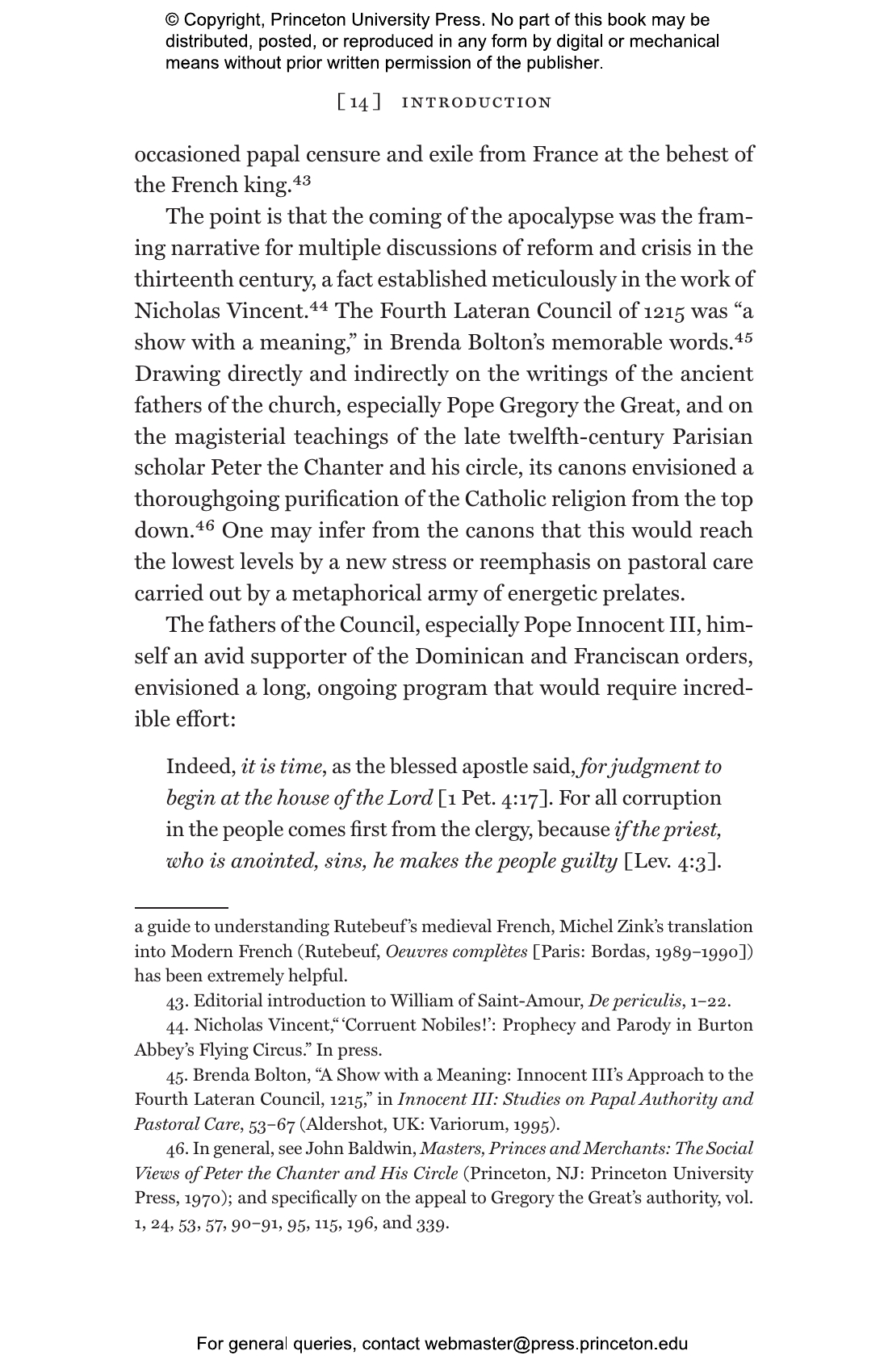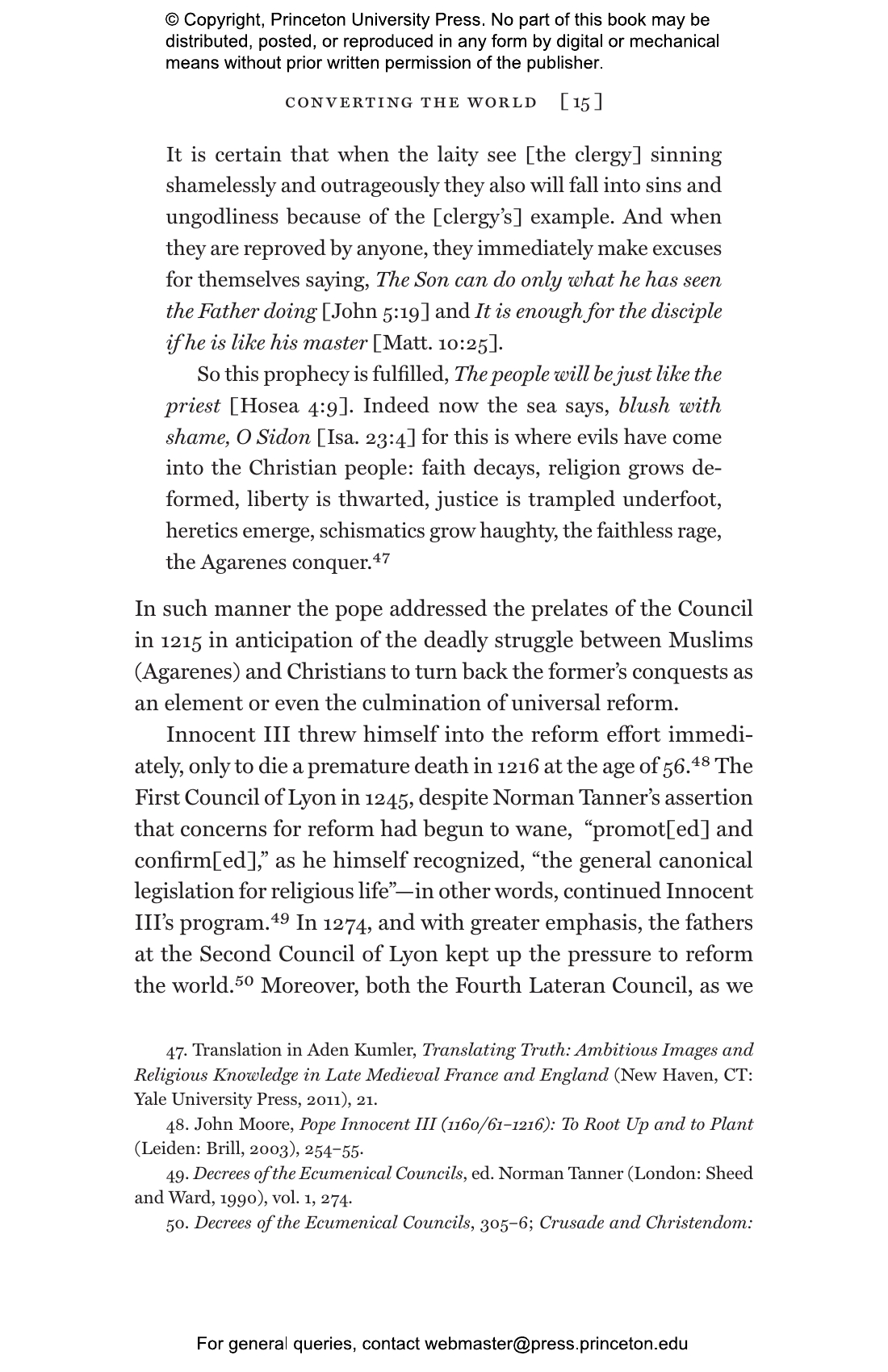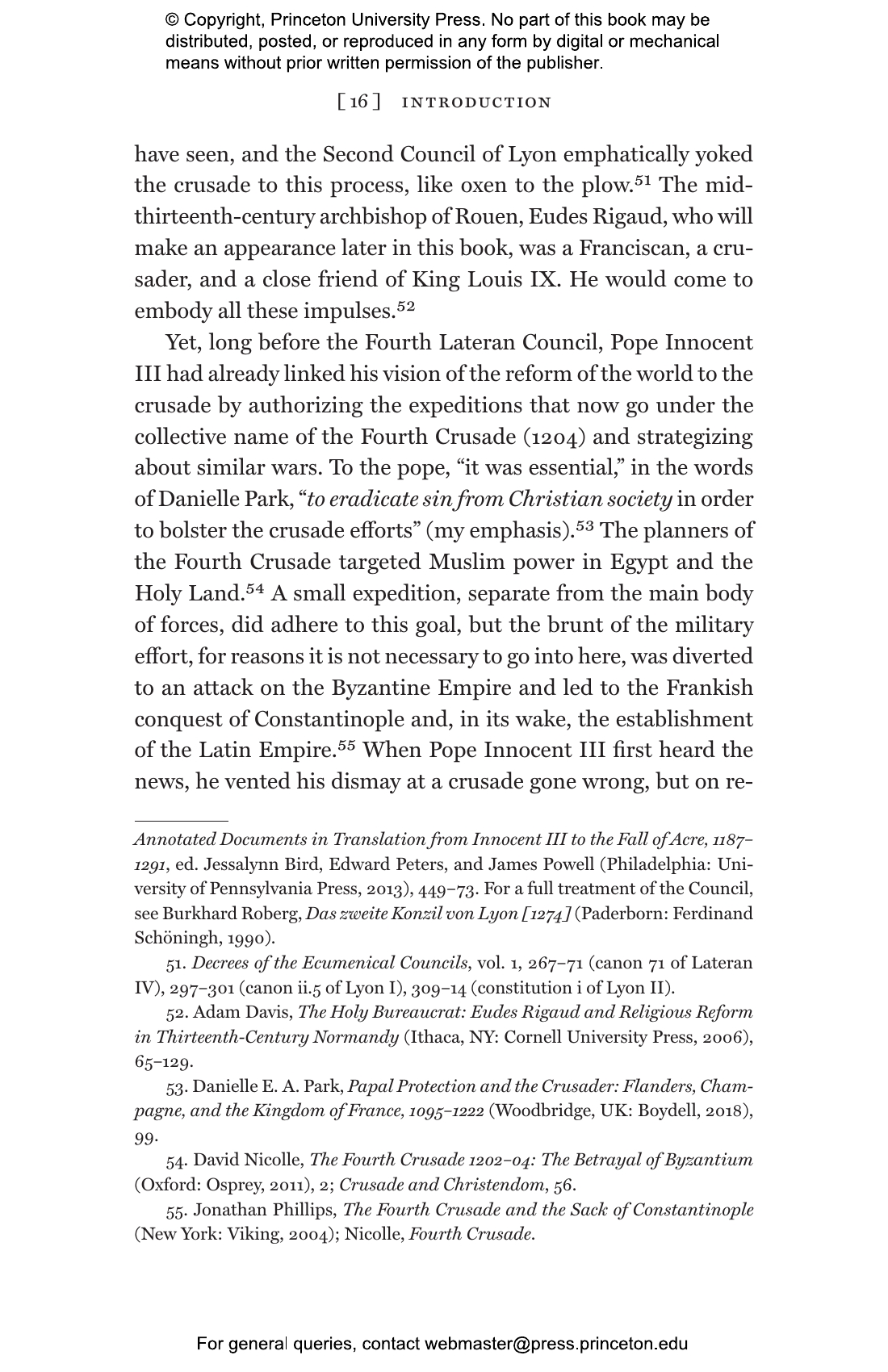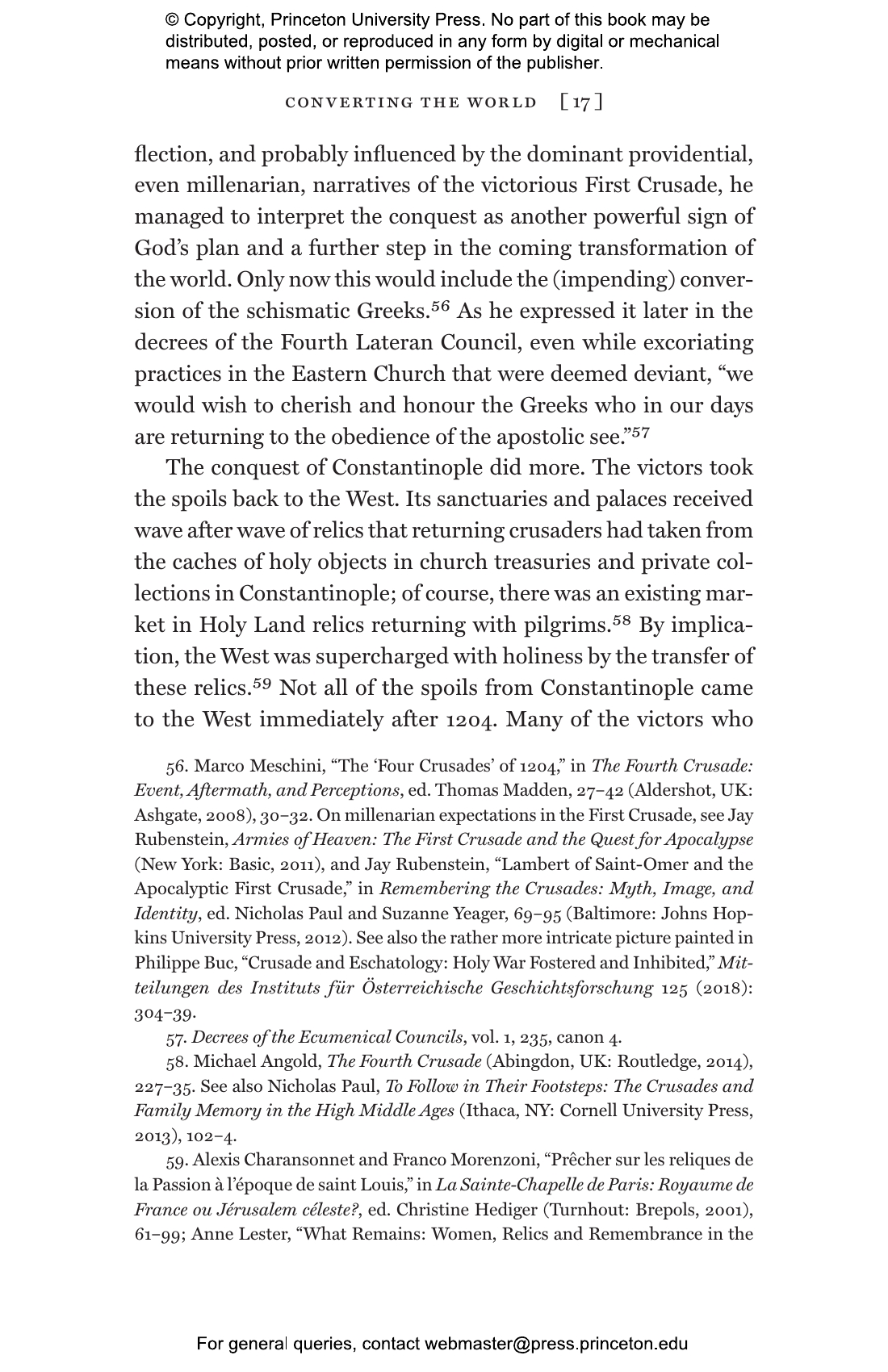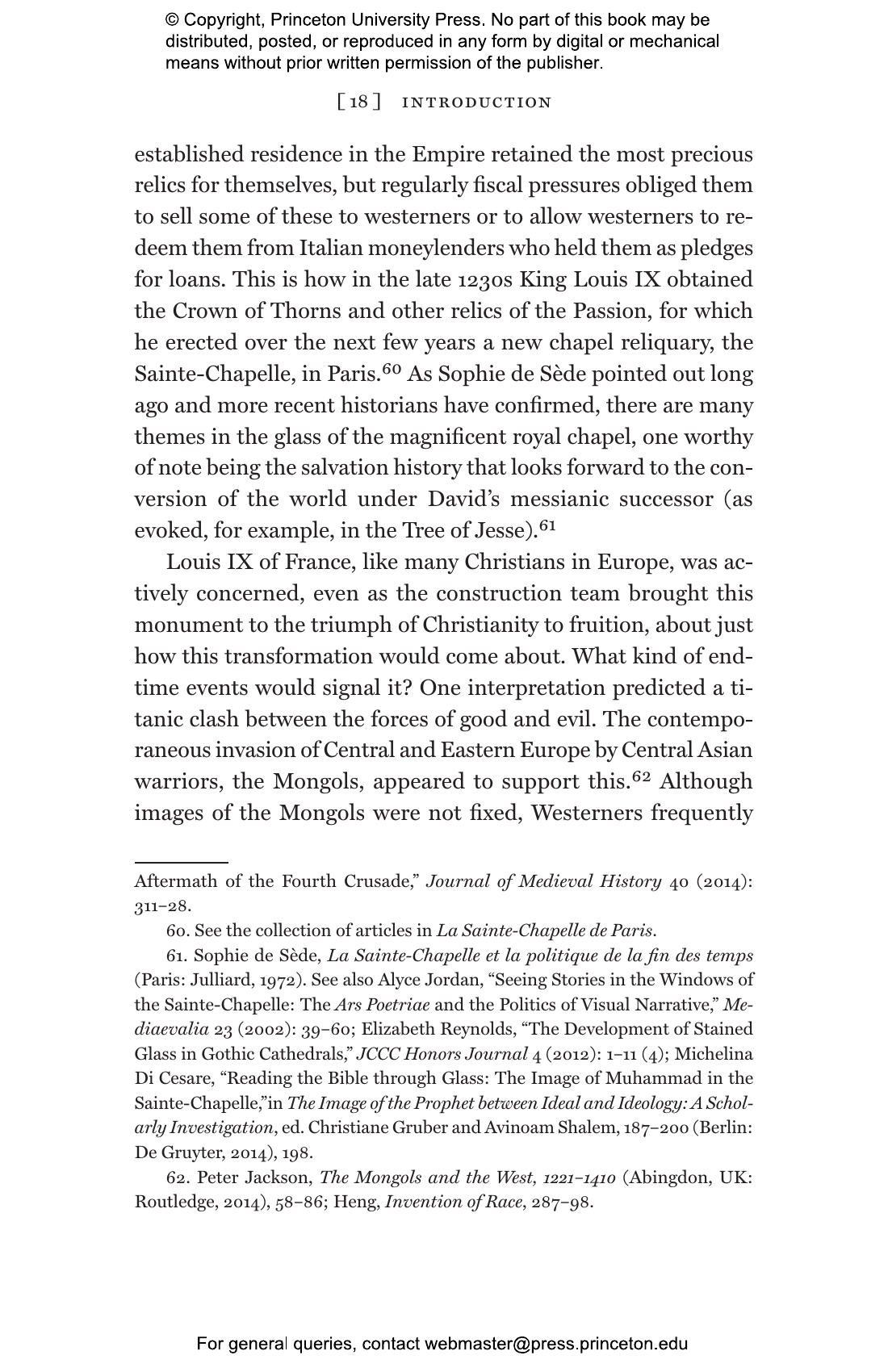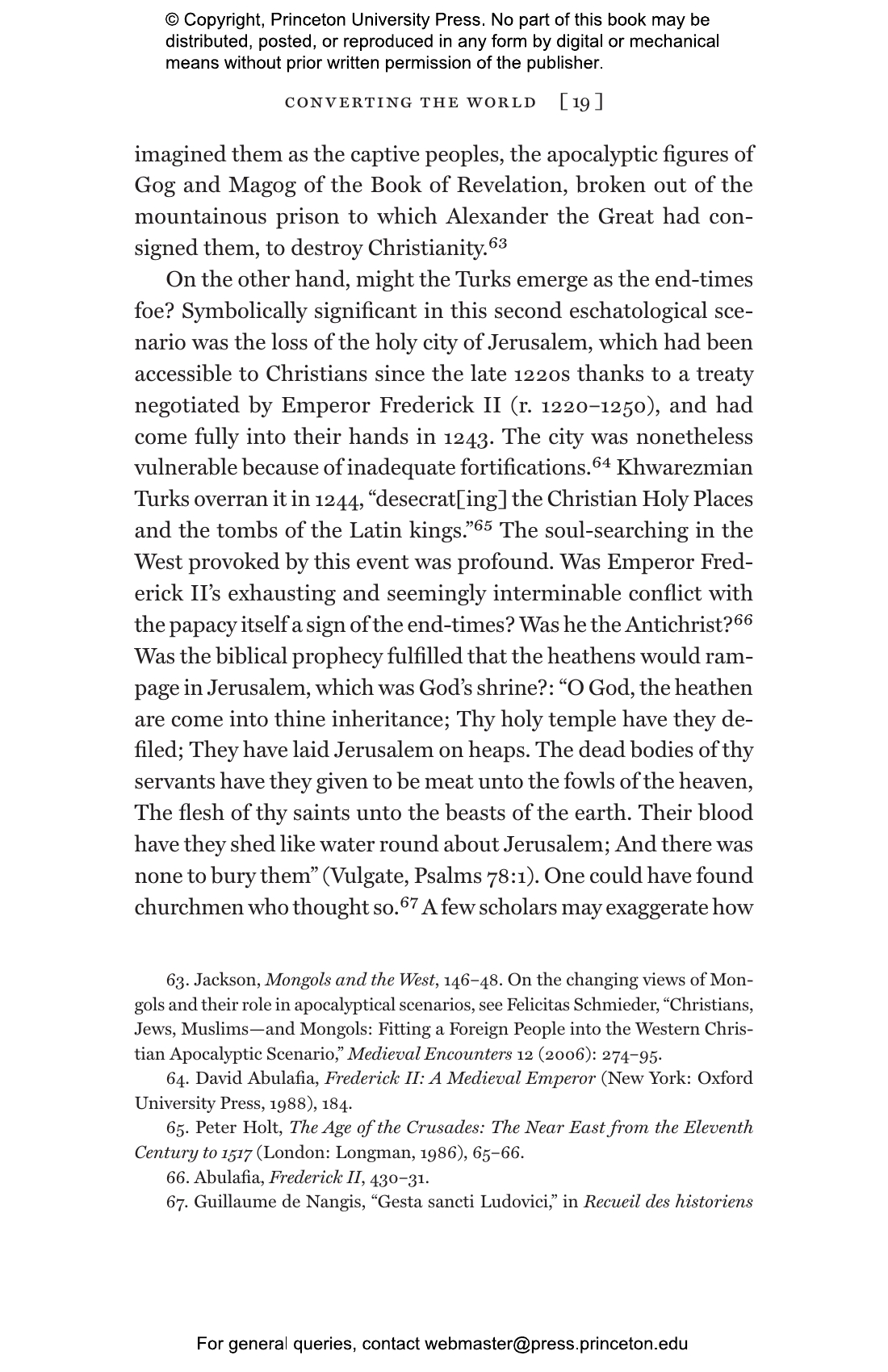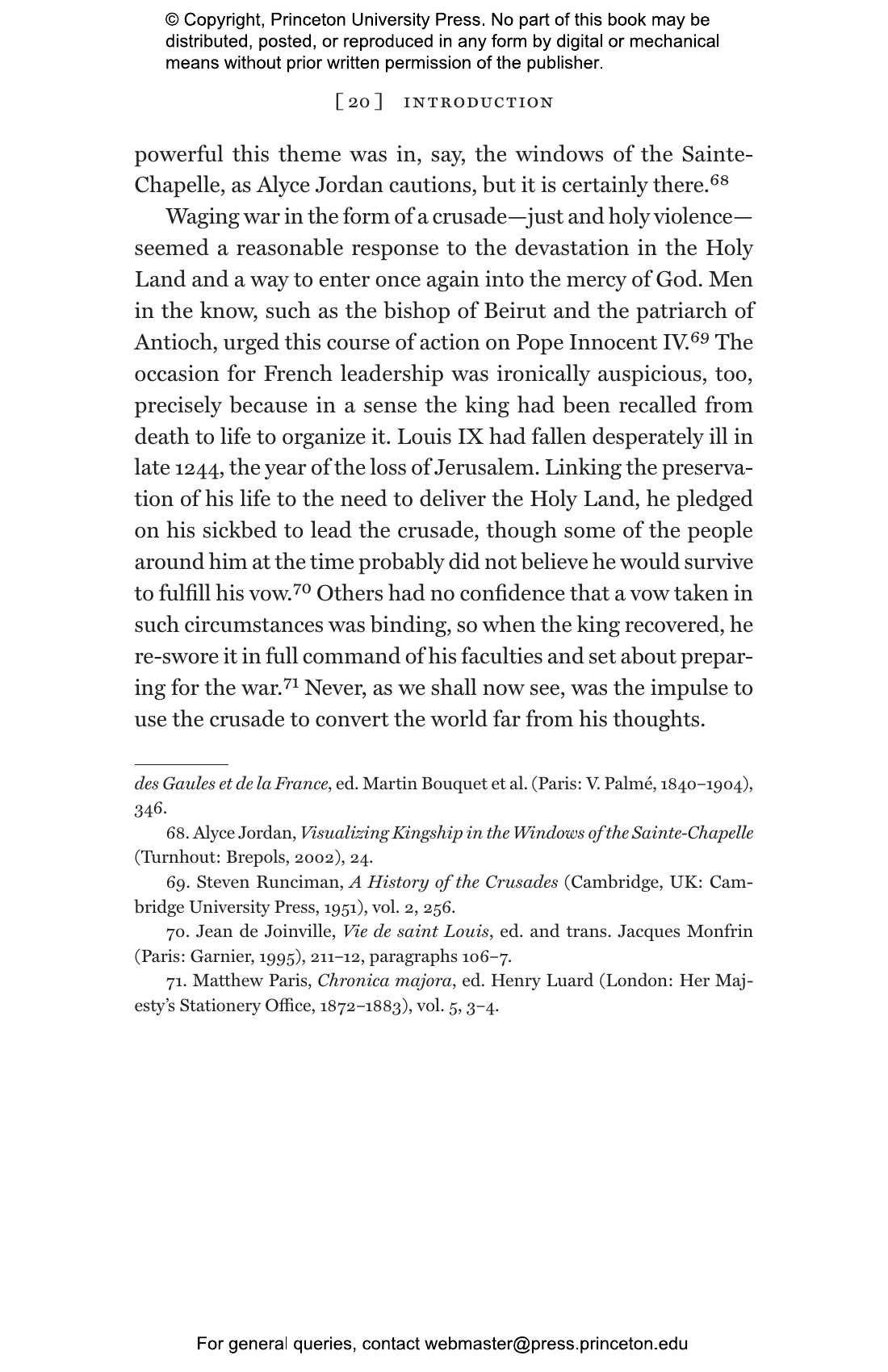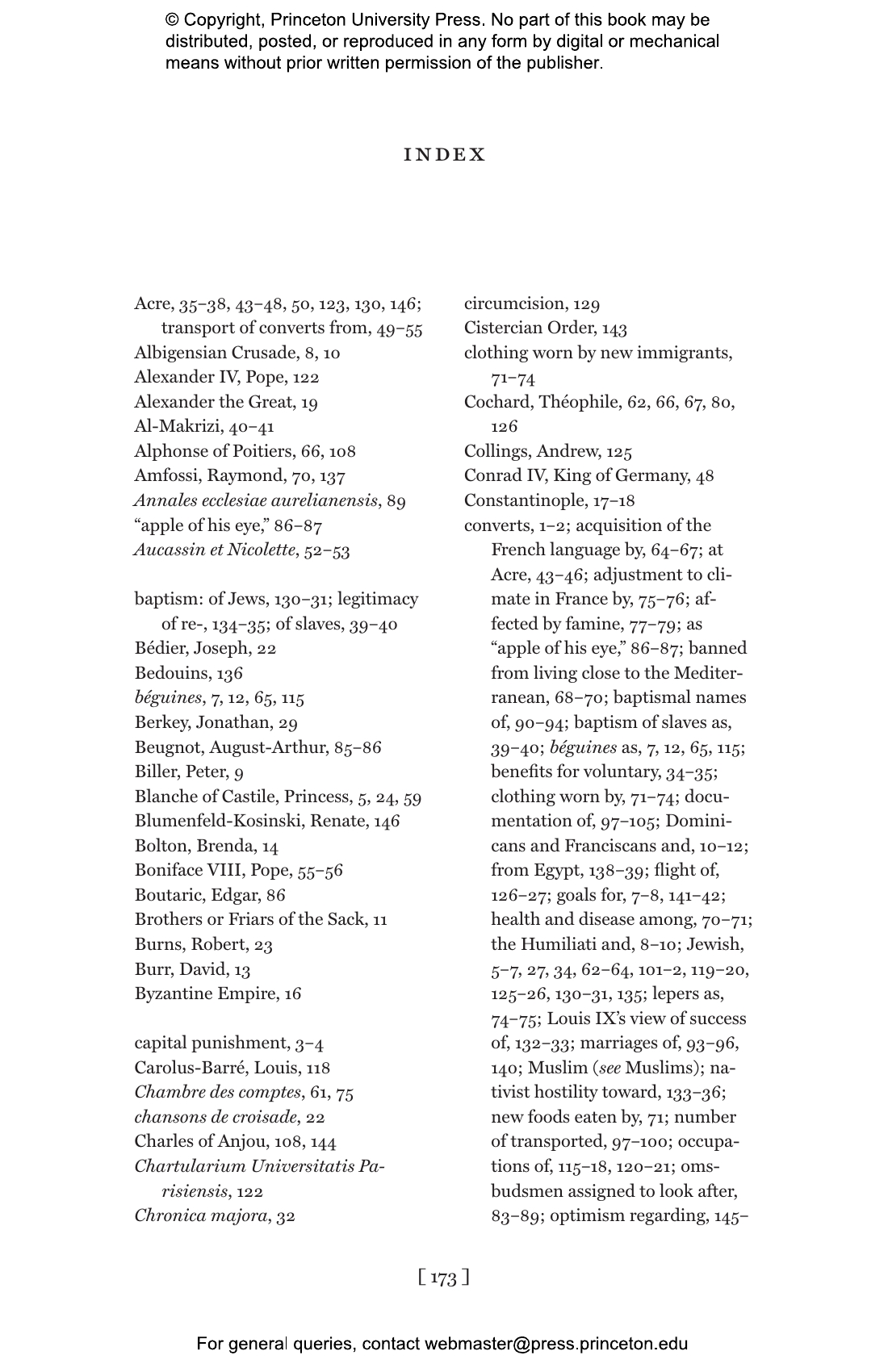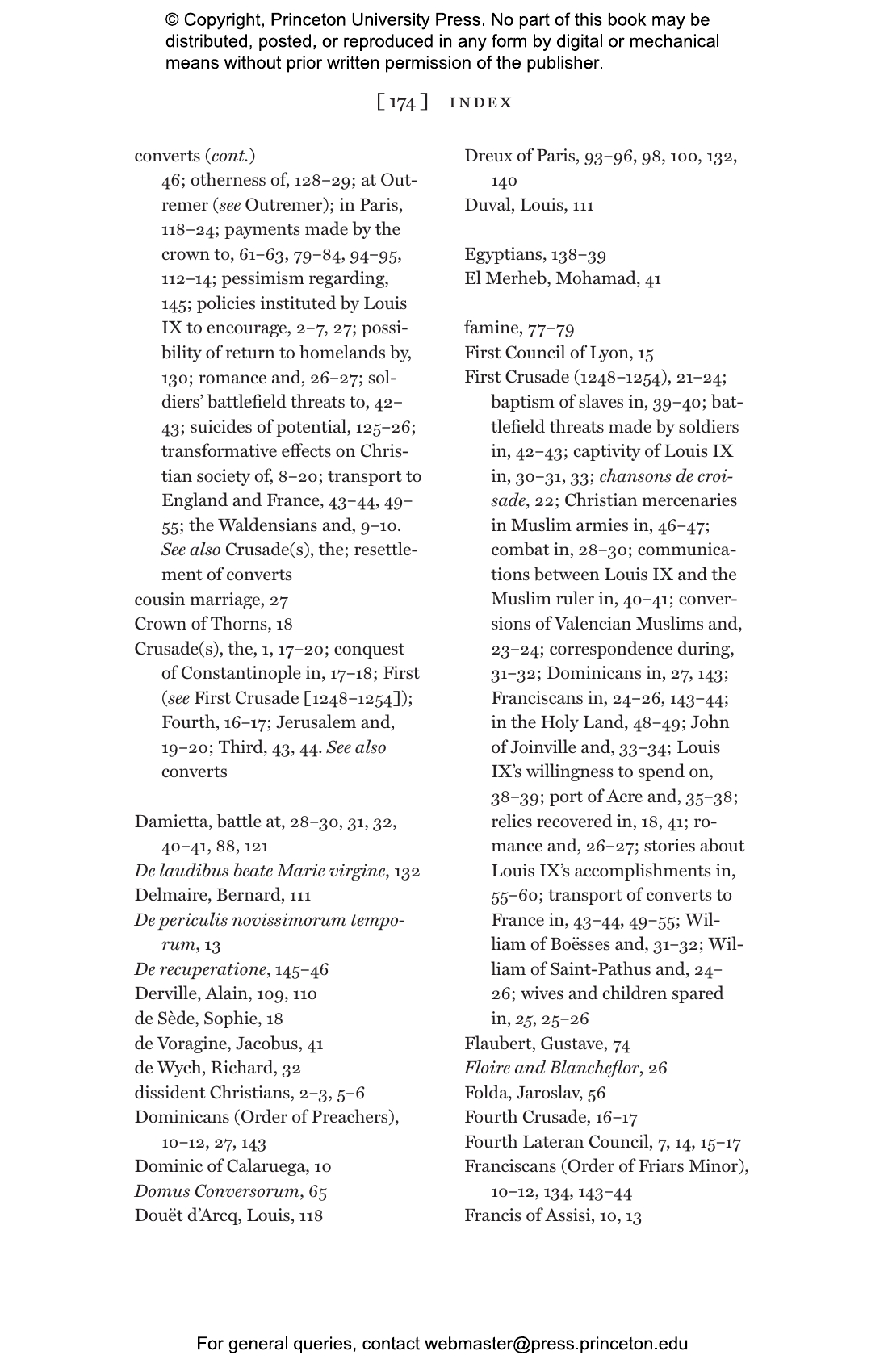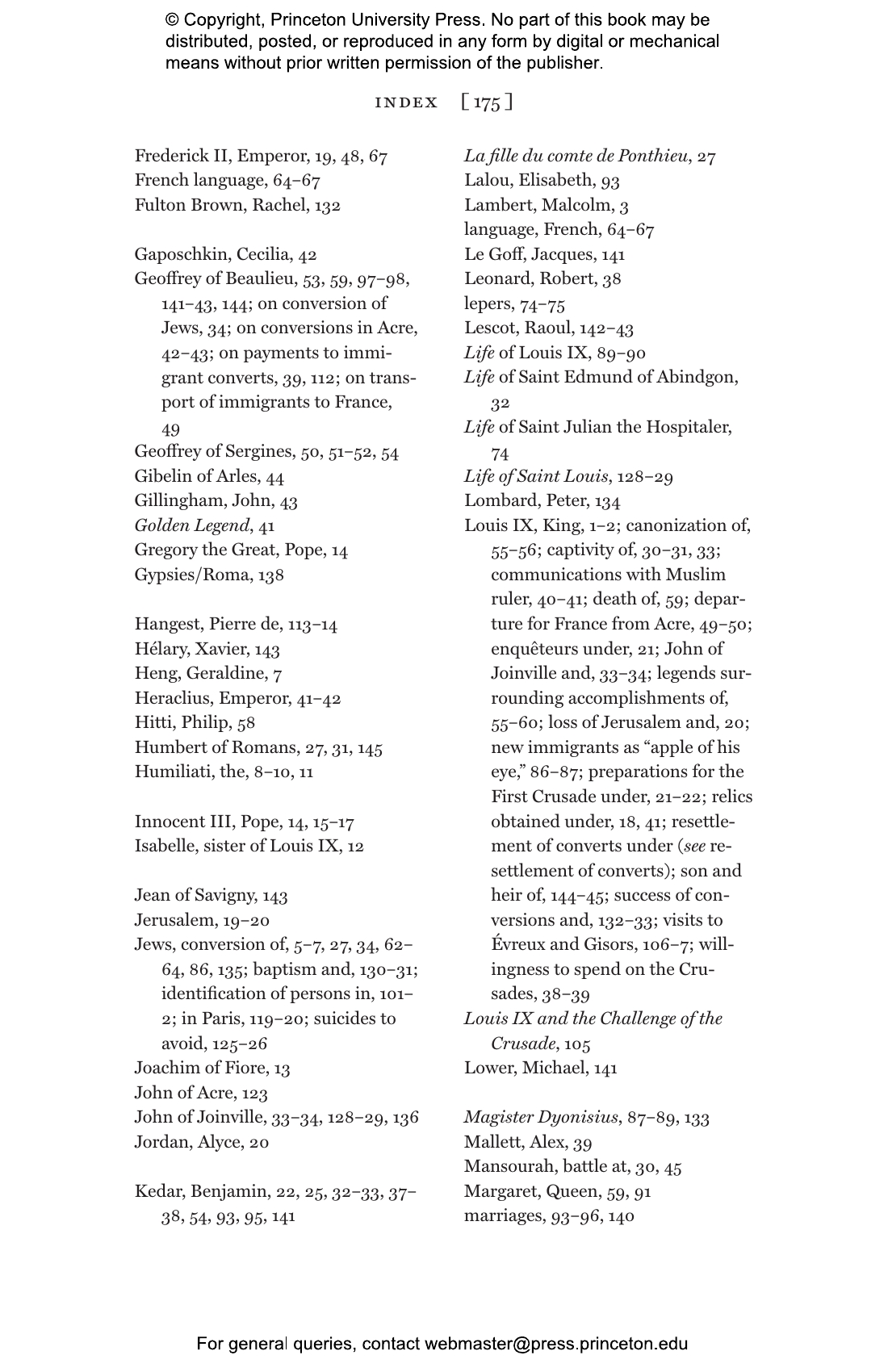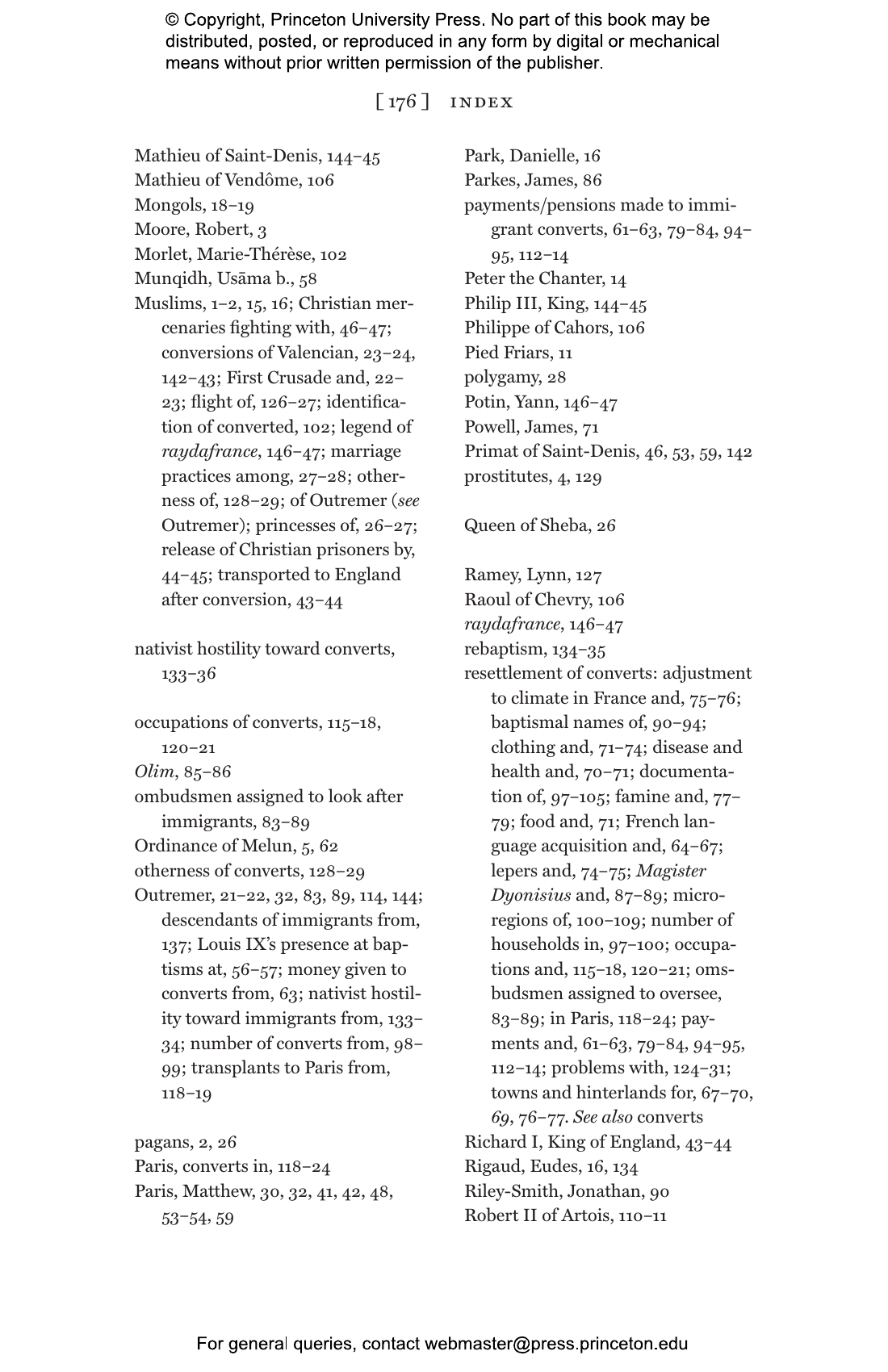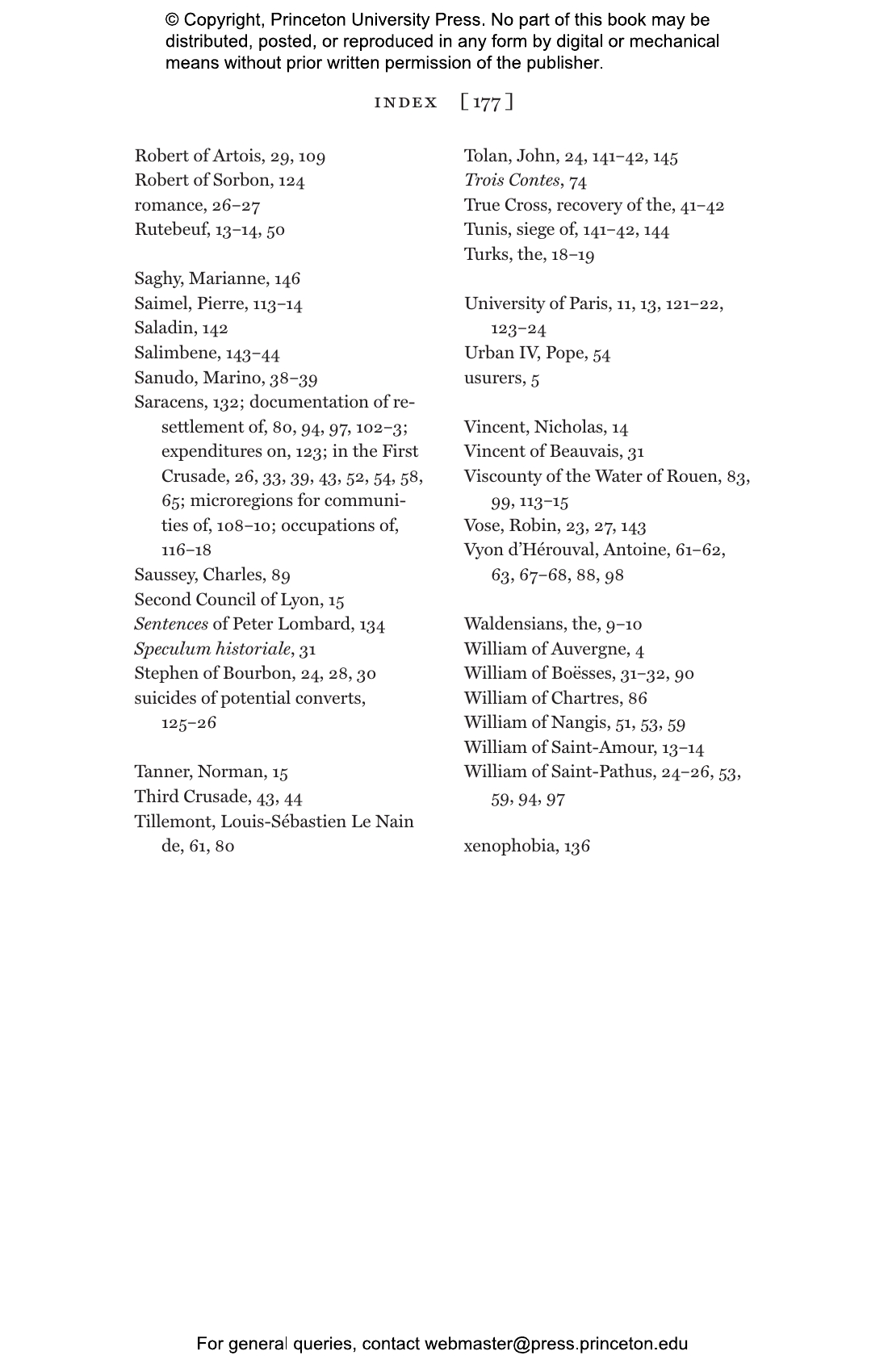The thirteenth century brought new urgency to Catholic efforts to convert non-Christians, and no Catholic ruler was more dedicated to this undertaking than King Louis IX of France. His military expeditions against Islam are well documented, but there was also a peaceful side to his encounter with the Muslim world, one that has received little attention until now. This splendid book shines new light on the king’s program to induce Muslims—the “apple of his eye”—to voluntarily convert to Christianity and resettle in France. It recovers a forgotten but important episode in the history of the Crusades while providing a rare window into the fraught experiences of the converts themselves.
William Chester Jordan transforms our understanding of medieval Christian-Muslim relations by telling the stories of the Muslims who came to France to live as Christians. Under what circumstances did they willingly convert? How successfully did they assimilate into French society? What forms of resistance did they employ? In examining questions like these, Jordan weaves a richly detailed portrait of a dazzling yet violent age whose lessons still resonate today.
Until now, scholars have dismissed historical accounts of the king’s peaceful conversion of Muslims as hagiographical and therefore untrustworthy. Jordan takes these narratives seriously—and uncovers archival evidence to back them up. He brings his findings marvelously to life in this succinct and compelling book, setting them in the context of the Seventh Crusade and the universalizing Catholic impulse to convert the world.
"Jordan's book, full of imaginative sympathy with those undergoing total displacement, constructs an intricate picture of the convert experience in France. . . . He writes in measured prose, guiding readers along unfamiliar historical paths."—Michael Duggan, Catholic Herald
"[This] book has a great deal to offer historians working on range of topics. For those concerned with missionary activity during this era, Jordan’s ability to shed light on the post-conversion experiences of these families represents a real step forward in our knowledge."—Nicholas Morton, Journal of Religious History, Literature, and Culture
"Jordan carefully tracks down and puts together the records of the crown’s financial outlays and legal and administrative measures for these immigrant converts. This painstaking detective work provides a fascinating study that will be of great interest to historians of the crusade and of the French crown."—John Tolan, Journal of Ecclesiastical History
“This short but very exciting book argues persuasively and conclusively that King Louis IX of France organized and implemented a substantial program to resettle in France men and women who had converted from Islam to Christianity. A highly significant contribution.”—Sean L. Field, University of Vermont
“This exquisite, sharp, and brilliant book reveals a wholly unappreciated facet of the long history of Europe and Islam. The Apple of His Eye was a total revelation to me.”—Cecilia Gaposchkin, Dartmouth College
"William Chester Jordan's brilliant detective work has uncovered the previously unimagined: more than a thousand former Muslims living in the France of King Louis IX. Combining imagination with great learning, Jordan recreates the thought-world of King Louis and the challenges these immigrants faced in a strange, cold land."—John Gillingham, author of William II: The Red King
"In this hugely enjoyable and engaging book, William Chester Jordan deftly brings to light the remarkable story of an almost unknown group of converts from Islam, brought from the Holy Land to France by the crusading king, Louis IX. Jordan explores the grueling immigrant experience of these families and carefully shows us how cultures from across the Mediterranean both collide and integrate."—Jonathan Phillips, author of The Life and Legend of the Sultan Saladin
“In a characteristically deft and engaging work of forensic scholarship, William Chester Jordan has excavated the previously unexplored and unexpected phenomenon of a substantial community of Muslim converts in thirteenth-century France. The Apple of His Eye is a wonderful book, as rich in human sympathy and historical empathy as in scrupulous archival revelation.”—Christopher Tyerman, author of How to Plan a Crusade: Religious War in the High Middle Ages
